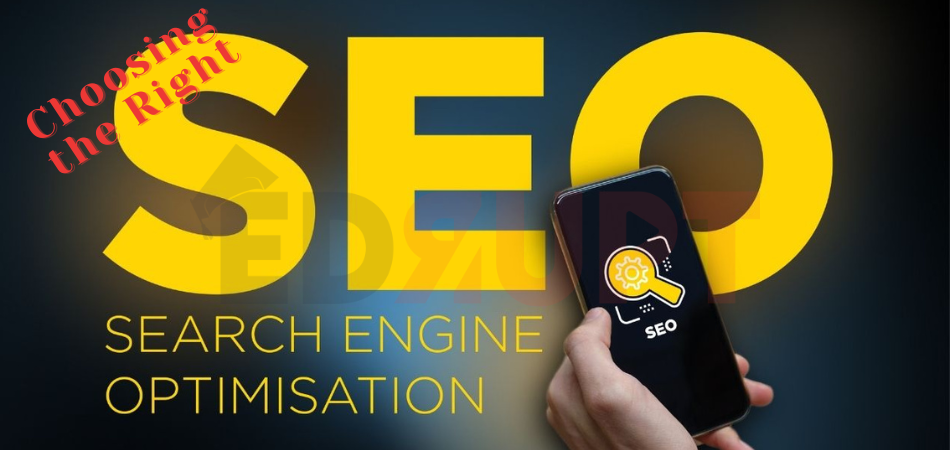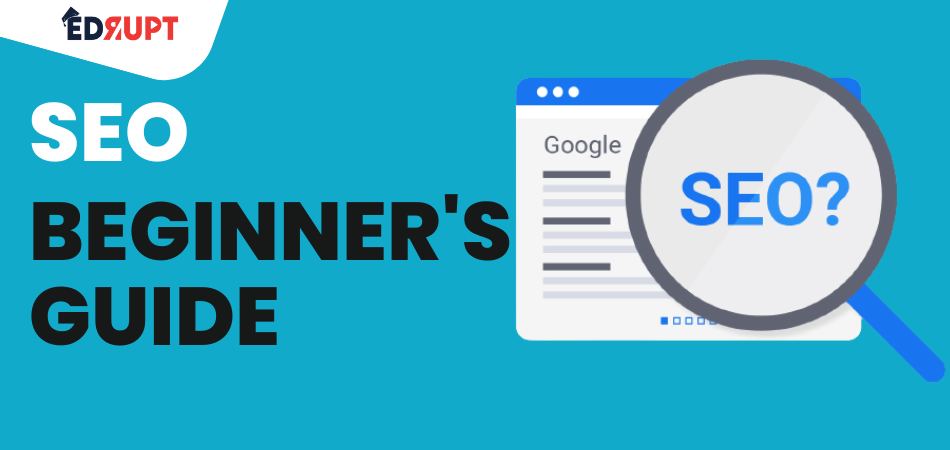Digital marketing has become an integral part of today’s business landscape, offering a world of exciting career opportunities for freshers in Digital Marketing.With the increasing reliance on online platforms and the ever-growing digital presence of businesses, the demand for skilled digital marketers is on the rise. However, starting a career in digital marketing can be overwhelming for newcomers. This article aims to provide a comprehensive guide on how to kickstart a successful career in digital marketing for freshers. From understanding the basics and identifying career opportunities to developing a strong skill set and navigating the job market, this article will equip aspiring digital marketers with the knowledge and strategies they need to embark on their digital marketing journey. Understanding the Basics of Digital Marketing What is Digital Marketing? Digital marketing is like a magical potion that helps businesses reach their target audience through online channels. It involves promoting products or services using various digital technologies, such as websites, social media, search engines, email marketing, and more. Basically, it’s all about getting your message across to the right people in the digital realm. Key Concepts and Terminologies in Digital Marketing Digital marketing has its own lingo, and it can feel like trying to crack a secret code. But fear not, young padawan! Some key terms to know are SEO (Search Engine Optimization), SEM (Search Engine Marketing), PPC (Pay-Per-Click), CTR (Click-Through Rate), ROI (Return on Investment), and CTA (Call to Action). Learning these terms will make you sound like a digital marketing ninja in no time. The Importance of Digital Marketing in Today’s Business Landscape In a world where we spend more time on our phones than talking to actual humans, it’s no surprise that businesses have shifted their focus to the digital realm. Digital marketing allows companies to connect with their target audience in a more personalized and cost-effective way. It helps increase brand awareness, generate leads, drive website traffic, and ultimately boost sales. So if you want to be in high demand, digital marketing is the place to be. Identifying Career Opportunities in the Digital Marketing Industry Exploring Different Digital Marketing Job Roles Digital marketing offers a smorgasbord of job opportunities that cater to a variety of skills and interests. You could be a social media manager, content writer, SEO specialist, email marketer, digital analyst, or even a unicorn tamer (just kidding, that’s not a real job…yet). By exploring different job roles, you can find the one that aligns with your talents and passions. Understanding the Demand and Growth Potential in Digital Marketing Did you know that the digital marketing industry is growing faster than a cheetah on roller skates? Companies are scrambling to find skilled digital marketers who can help them conquer the online world. With the rise of e-commerce and the increasing importance of online presence, the demand for digital marketing professionals is only going to skyrocket in the coming years. So, buckle up and get ready for a wild ride! Researching Digital Marketing Industry Trends and Insights Digital marketing is a constantly evolving field, like a chameleon with a new outfit every day. Staying updated on the latest trends and insights is crucial to thrive in this industry. Follow influential blogs, attend webinars, join industry groups, and be curious like a cat with nine lives. By staying ahead of the curve, you’ll always be one step ahead of your competition. Developing a Strong Skill Set for Digital Marketing Essential Skills for Digital Marketers To become a digital marketing guru, you need to have a few tricks up your sleeve. Some essential skills include strong written and verbal communication, creativity, analytical thinking, problem-solving, adaptability, and an insatiable appetite for learning. Oh, and a dash of Jedi-like patience wouldn’t hurt either. Acquiring Knowledge in SEO, SEM, Social Media, and other Digital Marketing Channels Digital marketing is like a buffet with a never-ending array of dishes. It’s important to have a basic understanding of various channels like SEO (to make websites visible on search engines), SEM (to run paid ads), social media (to engage with the online community), and other digital marketing channels. You don’t have to be a master chef in all areas, but a taste of each will make you a well-rounded digital marketer. Building Analytical and Data Interpretation Skills Numbers and charts might make you want to curl up in a ball, but analyzing data is a vital part of digital marketing. You need to be able to extract insights from analytics tools and make data-driven decisions. Think of it as detective work, where you uncover hidden patterns and trends that can help optimize your digital marketing strategies. So put on your Sherlock Holmes hat and get ready to crack the code. Gaining Practical Experience through Internships and Projects Finding and Applying for Digital Marketing Internships Ah, the glorious and terrifying world of internships. They may not pay much (or anything at all), but they offer invaluable hands-on experience. Look for internships in digital marketing agencies, startups, or even in-house marketing teams. Websites like LinkedIn, Indeed, and Glassdoor can be your trusty sidekicks in finding these opportunities. Dust off your resume, write a killer cover letter, and get ready to embark on an adventure. Participating in Real-world Digital Marketing Projects Projects are like mini-marathons that allow you to showcase your skills and creativity. Offer to help friends, family, or local businesses with their digital marketing efforts. Create a killer social media campaign, optimize a website, or write engaging content that stops people in their scrolling tracks. These projects not only add real-life experience to your portfolio but also demonstrate your passion and dedication to potential employers. Showcasing Internship and Project Experience on Resumes and Portfolios Once you have some internship and project experience under your belt, it’s time to flaunt it like a proud peacock. Update your resume to highlight your accomplishments and the impact you made during your internships or projects. Create an online portfolio to showcase your work, whether it’s writing samples, social media
Search engine optimization is one of the most important aspects of the marketing world. From spreading brand awareness to increasing relevant traffic to a website, it all comes down to SEO techniques. Considering its importance, why not enroll in a search engine optimization online course? Whether you are looking to upskill yourself or start a new career, enrolling in a search engine optimization training course can help you achieve your professional goal. Here’s how you can choose the right advanced SEO course to get started! The contents of the course When looking for an SEO course, assessing the course content is necessary. Even though search engine optimization covers increasing the ranking of a website and boosting traffic, there are some technical aspects like on-page SEO, off-page SEO, and technical SEO that must be explained in depth in the course. Theoretical vs. Practical Exposure A great SEO course focuses on the practical learning of individuals. After having conceptual clarity, practical exposure is impactful in preparing you for the challenges you are likely to face in the real world. Therefore, when looking for specialised search engine optimization courses, make sure to check the weight of theoretical vs. practical exposure. Taught by industry experts and professionals Who is going to teach the Search Engine Optimization Training Course? is one important aspect to keep in mind when looking for a great online course. Choosing a course that is taught by professionals with years of experience helps extract quality content and expose you to real-life challenges. For instance, an award-winning director of marketing from a reputed organization is likely to provide in-depth knowledge of SEO strategies. Therefore, ensure you do some research on the professional who has designed the SEO course. Flexible Learning For working professionals and students, an online Advanced SEO Course is a blessing as it allows learning at your own pace. While some take their time clearing their basics, others are quick learners, and an online platform facilitates 24×7 access to the content, making the learning process easier and more fun. Moreover, with flexible learning, you won’t feel rushed or bored. Go through the proof of success. Finding proof of success is necessary when it comes to the Search Engine Optimization Training Course. There are several search engine optimization courses available with just a few clicks, which makes it difficult to make the right decision. However, going through the reviews, ratings, and testimonials is one reliable way of finding out how effective the SEO course is. Feel free to visit the profiles of the professionals who have completed their course and how helpful they found it. Course Duration and Commitment Assess the time and effort the search engine optimization training course entails. Some SEO courses can be really time-intensive with hefty schedules, while others are more self-paced and flexible. Take into account your schedule and availability when enrolling in a course. It is very important to join a course that matches your time availability and desired pace of learning for its successful completion. Certification and credibility Look for Advanced SEO courses that offer certification upon completion. A well- recognized certificate can add value to your resume and demonstrate your expertise to potential employers or clients. In addition, consider the credibility of the institution or platform offering the course. Generally, courses from well-known universities, industry associations, or familiar online educational platforms are more reliable and respected. Cost and Value for Money Compare the fee of the search engine optimization online course to its worth. While cost may be part of the evaluation, it’s important to decide whether the price is worth it and factor that into a high-quality course recommendation. Look for courses that clearly break down what is included in the fee: access to course materials, support, and potentially other resources. Take into account the ROI you anticipate to derive from the learning outcomes of the course. Updates and Relevance The search engine optimization industry is constantly changing, with search engine tools, algorithms, and tactics evolving. Make sure the search engine optimization online course you select has a commitment to keep its content updated. Check if the course provider keeps you updated or provides access to their latest industry analysis. This ensures you will learn the very latest SEO strategies that are essential to succeed in today’s fast-moving digital world. Enrol in Search Engine Optimization Courses Today! Learning about SEO can really help set you up for success in today’s digital world. So, what are you waiting for? Take your career to the next level by enrolling in Edrupt’s SEO training course. Learn from the experienced and top digital marketers and prepare yourself to become the best in the industry! Join Edrupt’’s SEO course and become a certified professional!
Beginner’s Guide to SEO (Search Engine Optimization) Welcome to the Beginner’s Guide to SEO (Search Engine Optimization)! In today’s digital landscape, having a strong online presence is crucial for businesses and individuals alike. SEO is the practice of optimizing websites to improve their visibility in search engine results pages (SERPs), thus attracting more organic traffic. This comprehensive guide aims to provide beginners with a solid foundation in SEO fundamentals, techniques, and strategies. Whether you are a website owner, a content creator, or simply curious about SEO, this guide will equip you with the knowledge and tools to navigate the world of search engine optimization successfully. What is SEO? Definition of SEO SEO, or Search Engine Optimization, is the practice of improving a website’s visibility and ranking on search engine results pages (SERPs). It involves optimizing various aspects of a website to make it more appealing to search engines and ultimately drive more organic traffic. Why is SEO important? SEO is important because it helps your website get discovered by people searching for relevant information or products. When your website ranks higher on SERPs, it increases the chances of attracting clicks and visitors. Essentially, SEO helps you stand out in the vast sea of online content and gain a competitive edge. Importance of SEO for Beginners Benefits of SEO for websites SEO offers several benefits for websites, especially for beginners. It helps increase organic traffic, meaning visitors who find your site through search engines without paid advertising. More traffic translates to more potential customers or readers, which can result in higher conversions and revenue. Role of SEO in online visibility In today’s digital age, having an online presence is crucial for businesses and individuals alike. SEO plays a vital role in improving a website’s visibility on search engine result pages. When your site appears on the first page of search results, it becomes more visible to users searching for related keywords. This increased visibility can significantly impact organic traffic and brand exposure. Understanding Search Engine Algorithms Overview of search engine algorithms Search engine algorithms are complex systems used to determine the relevance and ranking of webpages on SERPs. While the exact algorithms are constantly evolving, their main goal is to provide users with the most relevant and high-quality results based on their search queries. Understanding how search engines work can help you optimize your website accordingly. Factors influencing search engine rankings Numerous factors influence search engine rankings. These include keywords, website structure and navigation, backlinks, user experience, site speed, mobile-friendliness, and the overall quality of content. It’s essential to consider these factors when optimizing your website to improve its chances of ranking higher on search engine result pages. On-Page SEO Techniques Importance of on-page optimization On-page optimization refers to optimizing individual web pages to improve their visibility and relevance for targeted keywords. It involves optimizing elements such as meta tags, headings, content, and URLs. On-page SEO is crucial because it helps search engines understand your webpage’s content and purpose, making it more likely to appear in relevant search results. Optimizing meta tags and headings Meta tags, including the title tag and meta description, provide brief descriptions of a webpage’s content to search engines. Optimizing these tags with relevant keywords and compelling information can improve click-through rates and overall visibility. Headings, such as H1 and H2 tags, also play a role in signaling the structure and relevance of your content to search engines. Creating quality and relevant content One of the most crucial aspects of on-page optimization is creating high-quality, relevant content. Search engines prioritize content that provides value and answers users’ queries. By producing well-written and informative content that aligns with targeted keywords, you can improve your website’s chances of ranking higher and attracting organic traffic. Remember, quality content is king! Off-Page SEO Strategies Introduction to off-page SEO When it comes to SEO, it’s not all about what happens on your website. Off-page SEO refers to the actions you take outside of your website to improve your search engine rankings. This includes building high-quality backlinks and leveraging the power of social media. Building high-quality backlinks Backlinks are like gold in the world of SEO. These are the links from other websites that point to your site. The more high-quality backlinks you have, the more authority and credibility search engines give to your website. Building backlinks involves reaching out to other website owners, creating valuable content, and fostering relationships in your industry. Social media and its impact on SEO Social media isn’t just for sharing cat videos and stalking your exes. It also plays a significant role in SEO. When your content gets shared on social media platforms, it increases its visibility and drives traffic back to your website. Social signals, such as likes, shares, and comments, also indicate to search engines that your content is valuable and worth ranking higher. Keyword Research and Optimization Understanding keywords and their importance Keywords are the foundation of SEO. They are the words and phrases people use when searching for information online. By understanding the keywords that are relevant to your business, you can optimize your website to appear in the search results when people search for those keywords. This increases your visibility and brings targeted traffic to your site. Conducting keyword research Keyword research involves finding the right keywords for your website. You want to identify keywords that have a good search volume, are relevant to your business, and have manageable competition. There are tools available, such as Google Keyword Planner, that can help you in this process. Implementing keywords effectively Once you have identified your target keywords, it’s essential to strategically place them throughout your website. This includes optimizing your page titles, meta descriptions, headings, and content. However, be careful not to overdo it. Keyword stuffing can do more harm than good and may even lead to penalties from search engines. Technical SEO Fundamentals Importance of technical SEO Technical SEO involves optimizing the technical aspects of your website to improve its visibility



